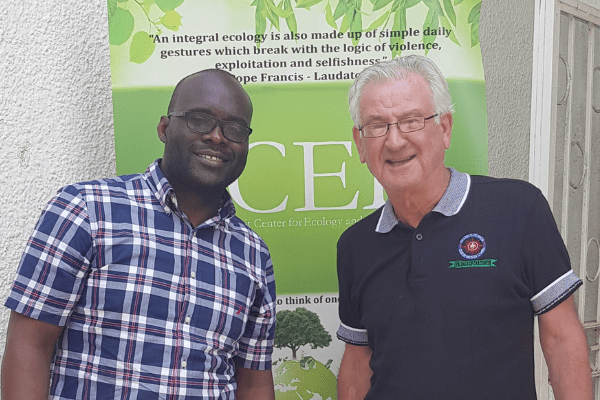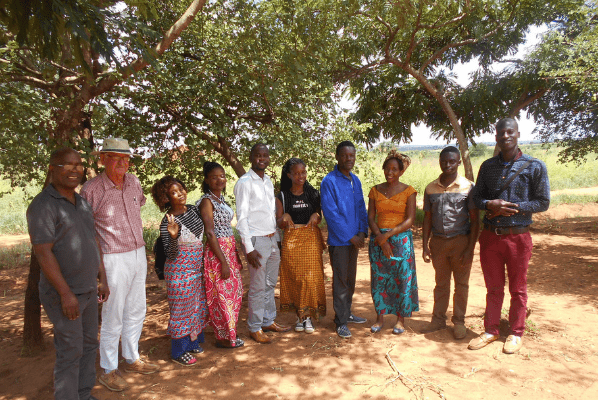
I usually set off from home at 7.30 am on my journey to the office. It’s a half-hour walk which is very pleasant as almost invariably the sun is shining and the temperature not so high. Also, as it’s the rainy season, everything it seems is in bloom. A good harvest beckons.
I begin work at 8.00am. by tackling any outstanding issues from the previous day, followed by administration, including my list of emails.
My working day is from 8.00am to 4.30pm with a break for lunch from 12.30 to 1.30pm, when I eat with JCED Director Fr Adrian Makasa SJ and other members of the community. The food here in Malawi is wholesome and organic. One real challenge people face here are the lack of electricity which are regular and cause disruption to people’s lives, which are also affected by the lack of running water.
Daily meetings and tasks
Each day is different, and the management team in the centre meets regularly to plan, monitor and evaluate the progress of the projects that the JCED is involved with, and to discuss our next steps for the future of the work. I work closely with the entire staff, especially with Fr Makasa and Programme Director Steve Makungwa.
“Tasintha” – Building resilience of farming communities in Kasungu, Malawi, to the impacts of climate change – is the flagship project of the JCED. It is a three-year project that aims to create a productive and resilient society for small-cale farmers and their families in the Kasungu District through increased livelihood opportunities, enhanced food security and improved nutrition. There is an environmental aspect to the projects too, which promotes improved green, climate-resilient farming practices. The project is funded by Misean Cara, through the Irish Jesuit Missions office.
Kasungu District, where the “Tasintha” project is based is a 1.5-hour drive from Lilongwe, the capital of Malawi, where the JCED office is. As the major project of JCED, it takes pre-eminence in the organisation, it appropriately also takes up a considerable amount of my time and energies. I make regular field visits to the project to engage with staff and participants and to monitor progress.

In implementing the project, we work with thirty communities and three schools in Kasungu District. There are thirty farmers selected in each of the communities. Small-holder farmers greatly depend on rain-fed agriculture for their survival. Therefore, farmers’ livelihoods are vulnerable to weather-related shocks and the declining natural resource base. The project sets out to address these challenges by supporting techniques needed in the identification and understanding of climate change impacts. It also highlights a range of different livelihood opportunities to reduce the farmers’ dependence on the land.
There is almost universal agreement that the most disadvantaged are suffering most from the impact of climate change, even though these communities are least responsible for the emissions causing it. I witness first-hand the effects of a changing climate, as Malawi, and in particular Kasungu District, are examples of marginalised communities that are suffering the effects of climate injustice.
“Tasintha is a very strategic response to the challenges of climate injustice, and the objectives and work of the project are of vital importance, not only to the direct beneficiaries but in terms of learning and advocacy, to a much wider audience. I feel privileged to spend my days playing a part in that.”
The Jesuit Centre for Ecology and Development (JCED) has been in Malawi since 2012. Its mission is to promote sustainable livelihoods, food security and nutrition, water and sanitation, use of efficient and renewable energy sources, and proper management of natural resources. The centre works to improve the livelihoods of local community members by counteracting the effects of climate change and also improving the environment.
Photo: Fr Adrian Makasa SJ and Fran Flood, Director and Deputy Director at JCED
Author: Fran Flood is Deputy Director at JCED in Malawi.

